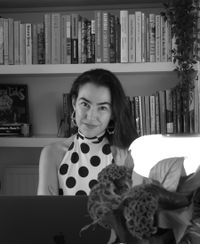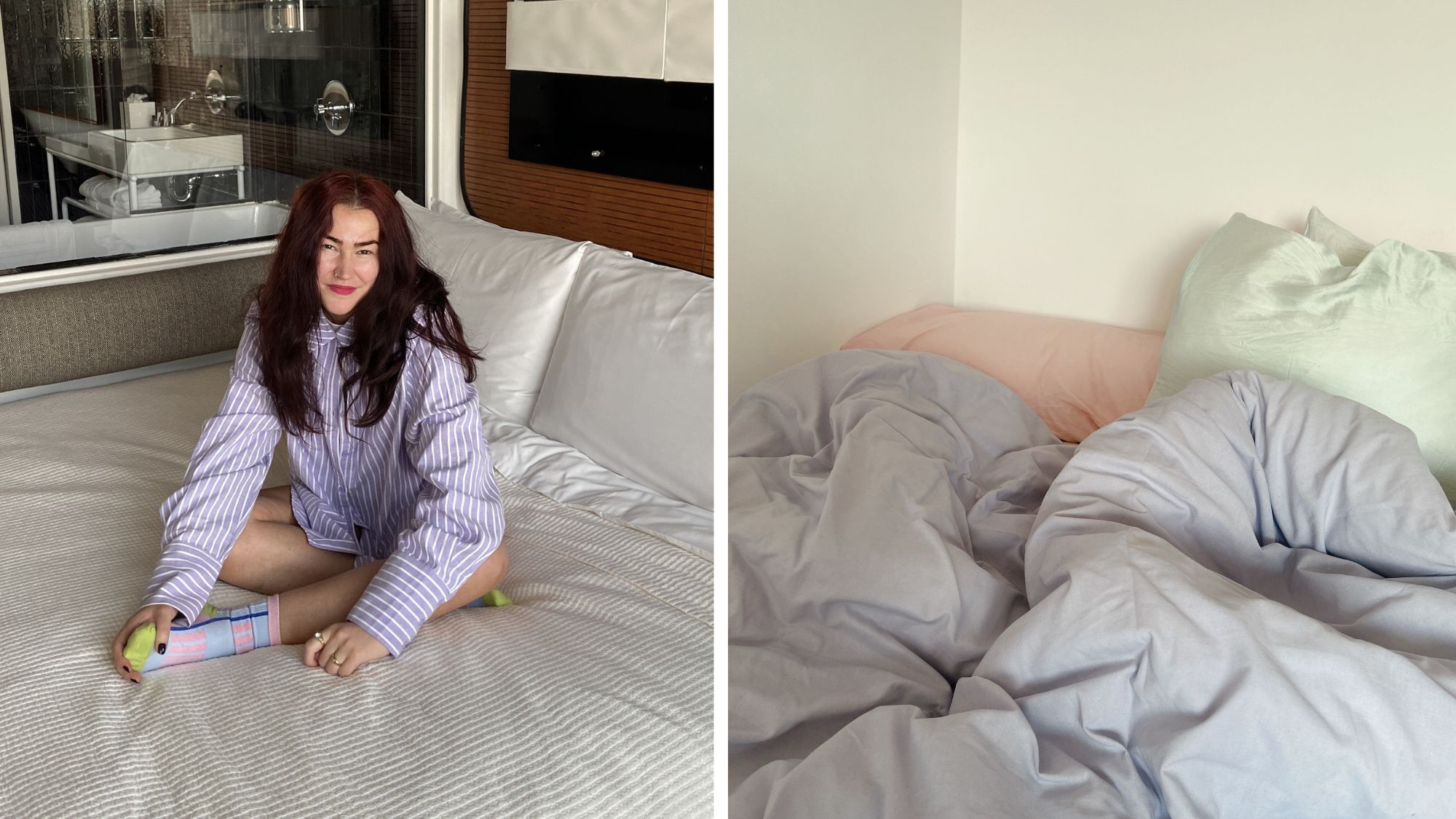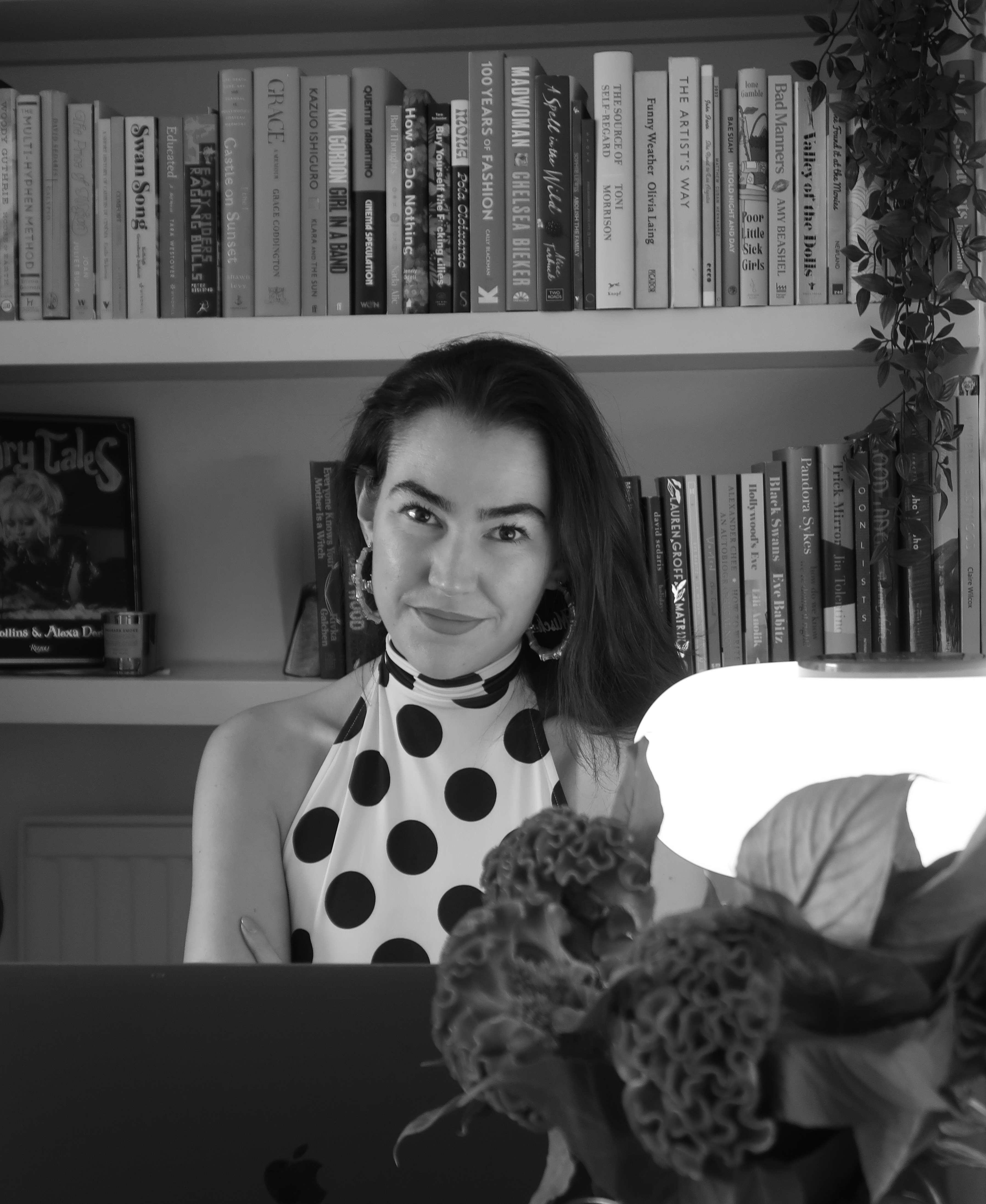As an insomniac, I find TikTok’s sleepy girl trend problematic
Sleepy Girl, Goblin Mode, Bed Rot - is this the era of a lazy girl utopia or has self-optimisation simply had a rebrand?


Celebrity news, beauty, fashion advice, and fascinating features, delivered straight to your inbox!
You are now subscribed
Your newsletter sign-up was successful
At first glance, TikTok’s Sleepy Girl trend, as popularised by the aesthetically pleasing Sleepy Girl Mocktail is the antithesis of the 2010’s Rise & Grind culture. Goodbye, Girlbossing, side-hustling and being a #BossBabe; this is 2024, where sleep is sanctified, not rarefied. Or is it?
As an insomniac, I’m sceptical of anything that promises me “the best sleep ever”. MC Health Editor Ally Head delved into wellness influencer Gracie Norton’s dubious nighttime elixir, which blends pure tart cherry juice with magnesium powder and soda or sparkling water and has 1.5 million views. Magnesium powder does have some scientifically-backed sleep-enhancing properties, but syrupy cherry juice before bed? It reeks of another costly quick fix reinforcing the idea that even our most basic functions can be optimised and aestheticised.
Elixirs are hardly a new phenomenon — the Ancient Persians and Greeks used mercury (yes, that famously noxious chemical element) as an all-around ointment — and while I’m not against sleep enhancers per se, I bristle against the dominant thinking that costly self-help remedies are the only solution. Instead of first reaching for the pillow spray, should we not examine why one in three adults in the UK is being kept awake at night? Like, say, climate change, high levels of unemployment, a precarious housing market - and so on. Sleepy tea — or the latest obsession, a sleepy mocktail — will not solve systematic problems. Yet, time and again, we’re made to believe the problem and the solution lies with the individual.
In my experience, this meant obsessively controlling my environment in a bid to get some shut-eye - no screens after 9 pm, no caffeine after 4 pm, and a phone filled with mindfulness apps and meditation tutorials, not to mention an elaborate nighttime routine and enough herbal remedies and over-the-counter sleep aids to knock out a small horse. The responsibility felt mine to shoulder, even though I sensed early on that my insomnia was fuelled by outside forces.
Writer and political and cultural theorist Mark Fisher put it plainly in his essay The Privatisation of Stress; “Capital makes the worker ill, then multinational pharmaceutical companies sell them drugs to make them feel better.” For me, this meant spending a small fortune on anything with a whiff of lavender and exhausting every self-help hack before I eventually sat down to explore the root cause of my insomnia (hint: it wasn’t a lack of lavender).
Even now, two years after my last bout of insomnia, I feel the pull of this dreamy nighttime trend. It taps into something that, as a culture, we’re fascinated with - self-optimisation. Sure, I’m currently getting my eight hours, but who wouldn’t want a heavier, deeper sleep and to wake up reinvigorated, as this mocktail promises? It’s not enough to do something as primal as sleeping; it has to be optimised, tracked and tallied. In the optimisation economy, even sleep, once considered capitalism’s “final frontier”, can be marketed. It’s why, globally, the wellness industry is worth a whopping $1.8 trillion.
The tug of self-improvement feels particularly powerful as our collective fascination with bettering ourselves reaches a fever pitch. January is punctuated with New Year’s resolutions, fitness goals and bids to do better and be better. It’s a lot of pressure. No wonder we’re investing in relaxation remedies.
Celebrity news, beauty, fashion advice, and fascinating features, delivered straight to your inbox!
When journalist Steve Poole reviewed Jonathan Crary’s 2013 book Late Capitalism and the Ends of Sleep, he wrote, “Sleep is an affront to capitalism.” Just over ten years later, that statement seems charmingly nostalgic, reminiscent of a time before TikTok accounts dedicated to sleep hacks, supposedly as a form of self-care but with all the trappings of self-optimisation. Expensive ingredients? Check. Aesthetically pleasing backgrounds? Check. Scores of influencers peddling scientifically questionable concoctions? Check.
I want to believe that the current obsession with getting a good night’s kip marks the end of our hustle culture and a rejection of the relentlessness of self-betterment, but I suspect TikTok’s sleepy girl trend shows us the opposite side of the same coin. You can’t rise and grind without first getting some rest.
Life hacks, self-improvement/optimisation/betterment - call it what you want, we’re all still a little obsessed with maximising every aspect of our lives - even the ones we’re not conscious for. The improvement industry is wide-awake and ready to fill the void left vacant by a lack of social solutions. Self-optimisation isn’t going anywhere; there’s no sleep for the wicked, after all.

Mischa Anouk Smith is the News and Features Editor of Marie Claire UK, commissioning and writing in-depth features on culture, politics, and issues that shape women’s lives. Her work blends sharp cultural insight with rigorous reporting, from pop culture and technology to fertility, work, and relationships. Mischa’s investigations have earned awards and led to appearances on BBC Politics Live and Woman’s Hour. For her investigation into rape culture in primary schools, she was shortlisted for an End Violence Against Women award. She previously wrote for Refinery29, Stylist, Dazed, and Far Out.